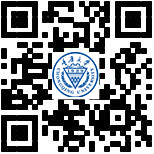Chinese Culture and Customs
Traditional Festivals
Spring Festival is the first day of Chinese lunar New Year. It is the most important, most featured and grandest traditional festival, and it has a history of over 4,000 years. People eat dumplings, set off fireworks and pay visits to relatives and friends during the Spring Festival. Due to the difference between Chinese lunar year and the common calendar year, the date of the Spring Festival changes from year to year. It is usually in January or February.
Tomb Sweeping Day is one of the most important festival days. During this festival, people sweep tombs and offer sacrifices to their ancestors. Tomb Sweeping Day normally falls in early April. In this season spring returns and the world is full of vigor, therefore people also go out to enjoy the beautiful scenery on Tomb Sweeping day.
Dragon Boat Festival is on the fifth day of the fifth month of the Chinese lunar year (in late June of the calendar year), and it has a history of over 2000 years. People eat rice dumplings and hold dragon-boat racing on this day.
Mid-Autumn Festival is on the fifteenth day of the eighth month of the Chinese lunar year. It is the second most important traditional festival in China. People eat moon cakes and enjoy the beauty of the full moon during the Mid-Autumn Festival.
Offering Food and Gifts
Chinese people are not accustomed to opening gifts on the spot. Usually they will accept the gift and say “thank you” politely, but it does not mean that they do not appreciate your gift.
When eating together, people insist on the guest taking more food several times and then make sure that the guest has eaten their fill.
How to Address People
In Chinese schools, “laoshi (老师)” is a polite appellation. Professors and administrative officers are all addressed as “XX Laoshi”, for instance, “Li Laoshi” or “Sun Laoshi”. It is not polite to address people with their full name.
Paying for Meals
Chinese love to invite their friends to dine in restaurants. As a matter of fact, what people care about is not the delicious food but the fun of friends gathering together.
People take turns to pay for dinners. It is considered impolite to allow your friends to pay regularly without taking a turn yourself. Sometimes it happens in restaurants that people compete to pay the bill. They seem to be fighting, but it is not a real fight.
In China, splitting the bill is not popular, though it is growing in popularity among young people. If you invite Chinese friends to dinner, it is best to confirm with your friends beforehand whether it is your treat or you will split the bill.

